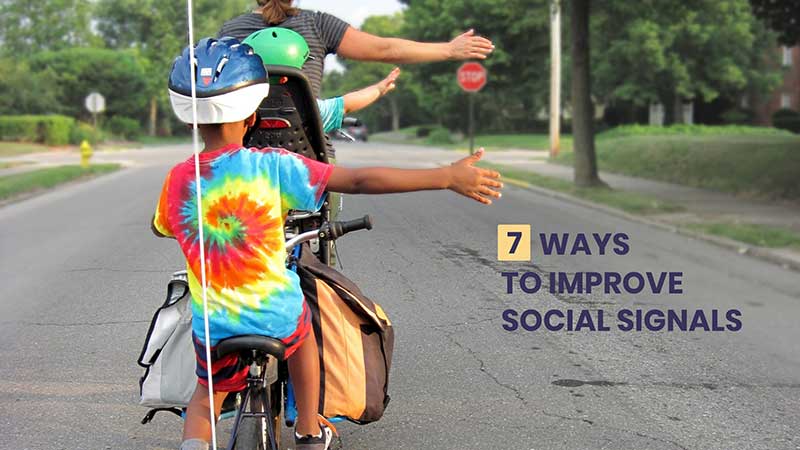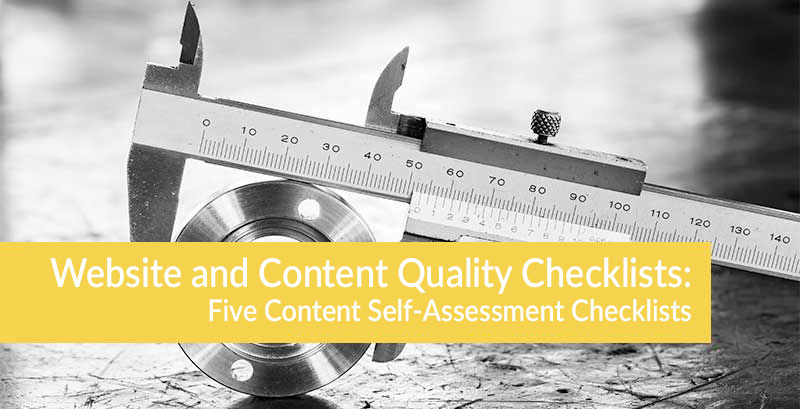Learn how social signals impact SEO
Social signals are the likes, shares, and views of social media posts. These social likes, shares, and views signal to search engines and your social media followers that your content is useful and relevant.
Likes, shares, and views help increase the visibility of your social posts. The more visible your posts, the more people who will read, like, share, and click your posts. For some social media posts, this can snowball into millions of shares, likes, views, and clicks.
Engagement or social signals are a key social media marketing metric – telling you what types of content resonate with your social media followers.
Search engines want to rank and promote content that resonates and engages readers. So, while Google does not consider social signals to be an official ranking signal, these likes, shares, and views do tell search engines your content is of high quality and value.
There is a lot of mixed messaging on social signals and their importance for SEO. In this blog we discuss how social signals impact SEO and how you can improve your social signals.
What are Social Signals?
Social signals are the human interaction and engagement with social media posts. Social signals include:
- Facebook likes, comments, and shares.
- Twitter likes, retweets, quotes, and conversations.
- Pinterest pins, views, and comments.
- LinkedIn connections, links, and references.
- Instagram followers, comments, and regrams.
- YouTube views, thumbs up, and comments.
The more likes, shares, views, and clicks a social post has – the more visible it is and the higher it ranks in your social media feed.
Search Engines and Social Signals
Search engines monitor social signals as an indicator of sources of high-quality, valuable, and useful content.
While Google does not officially use social signals as a ranking factor, we know that backlinks, search intent, content quality, freshness, and authority are ranking factors.
And the more social signals, engagement, and visibility your social posts have – this tells Google you’re sharing content that meets search intent, is relevant and authoritative, is of high quality and fresh, and the social shares generate more backlinks to your content.
Unlike Google, Bing considers user engagement (social signals) as a ranking factor. Bing sees user engagement, freshness, quality, credibility, and relevance to be important ranking factors. Underscoring how social likes, shares, views, and clicks can and do impact your Bing search rankings. Recent data shows that 36% of desktop searches in the U.S are on Bing – a number that should not be overlooked.
How Do Search Signals Impact SEO?
Search signals tell search engines which content is relevant, popular, and trusted – and this can increase the organic search ranking (SEO) for the content and page.
Search engines want to provide people with high-quality content that meets their search intent. To do this, search engines like Google and Bing rank content based on a number of ranking factors, including how popular or visible the URL is.
And this is exactly where and how social signals matter. Lots of likes, shares, and views of a social post inform search engines that this content is meeting the needs of their users.
The indirect impact of the increased website traffic, backlinks, and visibility of social posts with a high amount of engagement does impact your SEO and search engine results page (SERP) ranking.
Highlighting how important social engagement and visibility are to ranking factors and SEO, remember that Google has a partnership with Twitter. This partnership, formed in 2015, puts the focus on social search and the power of social media followers to amplify the value and relevance of content.
To put it simple, every like, retweet, regram, share, URL click, and view increases visibility, generates backlinks, and awareness – telling search engines that the content is relevant, fresh, high-quality, and important – and ultimately improving SEO and search ranking.
7 Ways to Improve Your Social Signals
To improve your social signals, remember these 7 social post guidelines:
- Post daily: an active and regularly updated social channel tells people and search engines that your website and company are active and relevant.
People use your social media presence to learn about your company, products, services, customers, and ability to meet their needs. A Twitter account that has not been updated since January 2021 does not instill brand confidence. - Post relevant content: it’s tempting to get caught up in the latest social trends and think you need to post about every holiday or social media holiday such as Cute Puppy Day, Burger Day, or Talk Like a Pirate Day – do not do this.
Your social media followers follow you for relevant content about your company, industry, and brand. These followers do not want to know how you’re honoring Cute Puppy Day (unless you sell puppy products).
Search engines are looking for posts that meet search intent and generate views and shares – don’t dilute your social channel with content that doesn’t meet search intent. - Post value benefit content: people do not read, they skim, so your social posts need to get straight to the value and benefit as quickly as possible.
When you write posts like: Social signals do matter for your SEO, here are 7 ways to improve your social signals – your followers know what they’ll get from clicking the URL in the post.
Practice writing value benefit content in just one sentence. Often if you can’t communicate the value and benefit in one or two sentences, it’s a sign your blog, article, or web page needs improvement. - Be social: reply to comments and when you post third-party content, do your best to tag the author in your social post. Share and retweet content you find useful, chances are this content is relevant to your followers.
- Optimize your social profile: don’t forget to include your website URL in your social media profile. Remember to update this when you’re running a new campaign or want to highlight a specific section on your website. People do search social media, so you want to make sure the correct URL is available to people.
- Add social plugins to your content: add social media plugins to make it easy for people to share your content on their social media channels. This helps increase visibility, shows search engines you’re creating relevant and high-quality content, and creates backlinks to your website.
- Be human: people like to communicate with other people. Make sure your posts are written the way you and your followers speak. Make it easy for your followers to connect and relate to you. People are more likely to share posts and click URLs in posts that resonate or speak to them. Know who your followers are and give them the right content.
Ultimately, you need to know why you’re on social media, what the best social strategy for each social channel is for your brand, and give your followers content that informs, educates, surprises, and stimulates curiosity.
When you do this, you’ll get the social signals you need to get the attention of search engines – helping you to rank higher in searches.
Contact us or call us and we’ll help you improve your social media content so you can get the social signals your brand deserves.
About the author
Jane Phelps is the CEO/Partner at Know Agency. Jane leads client SEO strategy and handles all aspects of in-house SEO demands. This includes providing SEO training, competitive analysis, keyword research, algorithm analysis, and the review of all new content to ensure SEO best-practices are followed. Jane holds a Master’s Certificate in Online Marketing from the University of San Francisco, is BrightEdge Certified.



